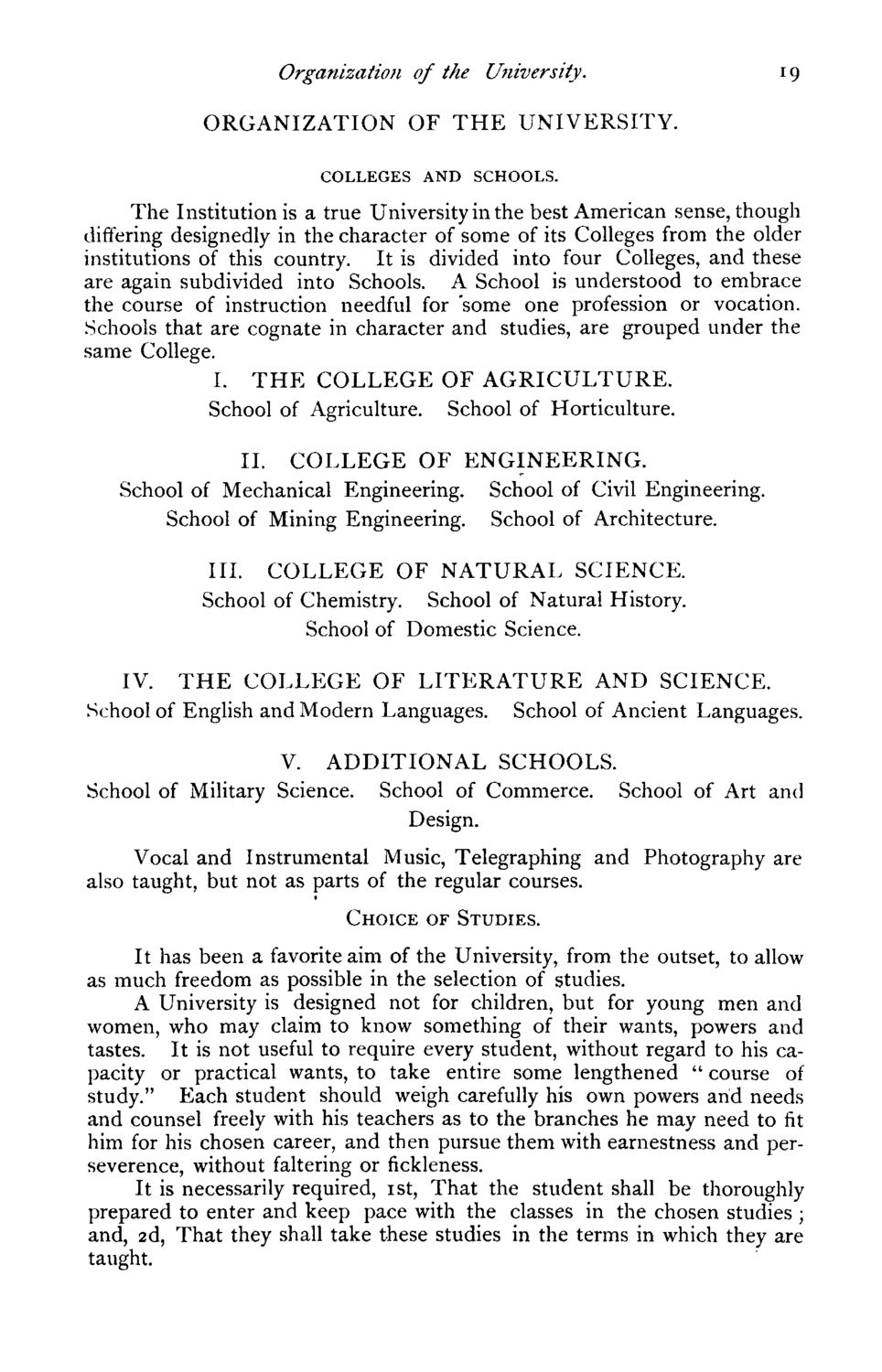| |
| |
Caption: Course Catalog - 1877-1878 Version A
This is a reduced-resolution page image for fast online browsing.

EXTRACTED TEXT FROM PAGE:
Organization of the University. ORGANIZATION OF T H E UNIVERSITY. COLLEGES AND SCHOOLS. 19 The Institution is a true University in the best American sense, though differing designedly in the character of some of its Colleges from the older institutions of this country. It is divided into four Colleges, and these are again subdivided into Schools. A School is understood to embrace the course of instruction needful for 'some one profession or vocation. Schools that are cognate in character and studies, are grouped under the same College. I. T H E COLLEGE OF AGRICULTURE. School of Agriculture. School of Horticulture. II. COLLEGE OF ENGINEERING. School of Mechanical Engineering. School of Civil Engineering. School of Mining Engineering. School of Architecture. III. COLLEGE OF NATURAL SCIENCE. School of Chemistry. School of Natural History. School of Domestic Science. IV. T H E COLLEGE OF LITERATURE AND SCIENCE. School of English and Modern Languages. School of Ancient Languages. V. ADDITIONAL SCHOOLS. School of Military Science. School of Commerce. School of Art and Design. Vocal and Instrumental Music, Telegraphing and Photography are also taught, but not as parts of the regular courses. CHOICE OF STUDIES. It has been a favorite aim of the University, from the outset, to allow as much freedom as possible in the selection of studies. A University is designed not for children, but for young men and women, who may claim to know something of their wants, powers and tastes. It is not useful to require every student, without regard to his capacity or practical wants, to take entire some lengthened " course of study." Each student should weigh carefully his own powers arid needs and counsel freely with his teachers as to the branches he may need to fit him for his chosen career, and then pursue them with earnestness and perseverence, without faltering or fickleness. It is necessarily required, 1st, That the student shall be thoroughly prepared to enter and keep pace with the classes in the chosen studies ; and, 2d, That they shall take these studies in the terms in which they are taught.
| |